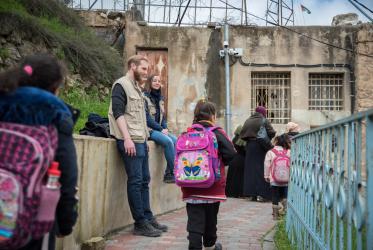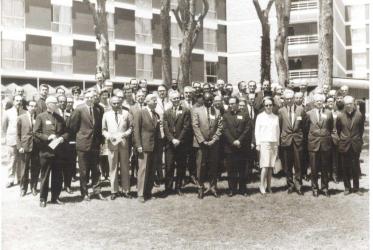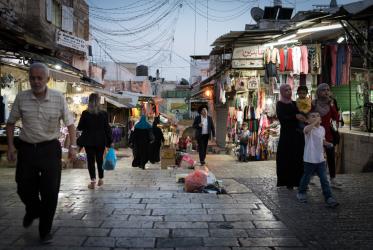Displaying 1 - 20 of 46
“They want to live without fear and constant harassment”
25 October 2023
Webinar remembers past massacres in Europe
16 December 2021
Webinar will remember past massacres in Europe
02 December 2021
Webinar - Intergenerational conversation will commemorate 50 years of WCC’s interreligious inroads
01 July 2021
https://us02web.zoom.us/webinar/register/WN_dwi_li4JTI6FRzEaqGeqvw
Lenten resource kindles love of God
12 February 2020
Fr Alexi - a peacemaker in Syria
21 December 2018
#WCC70: Canadian Quakers and the birth of the WCC
22 November 2018















